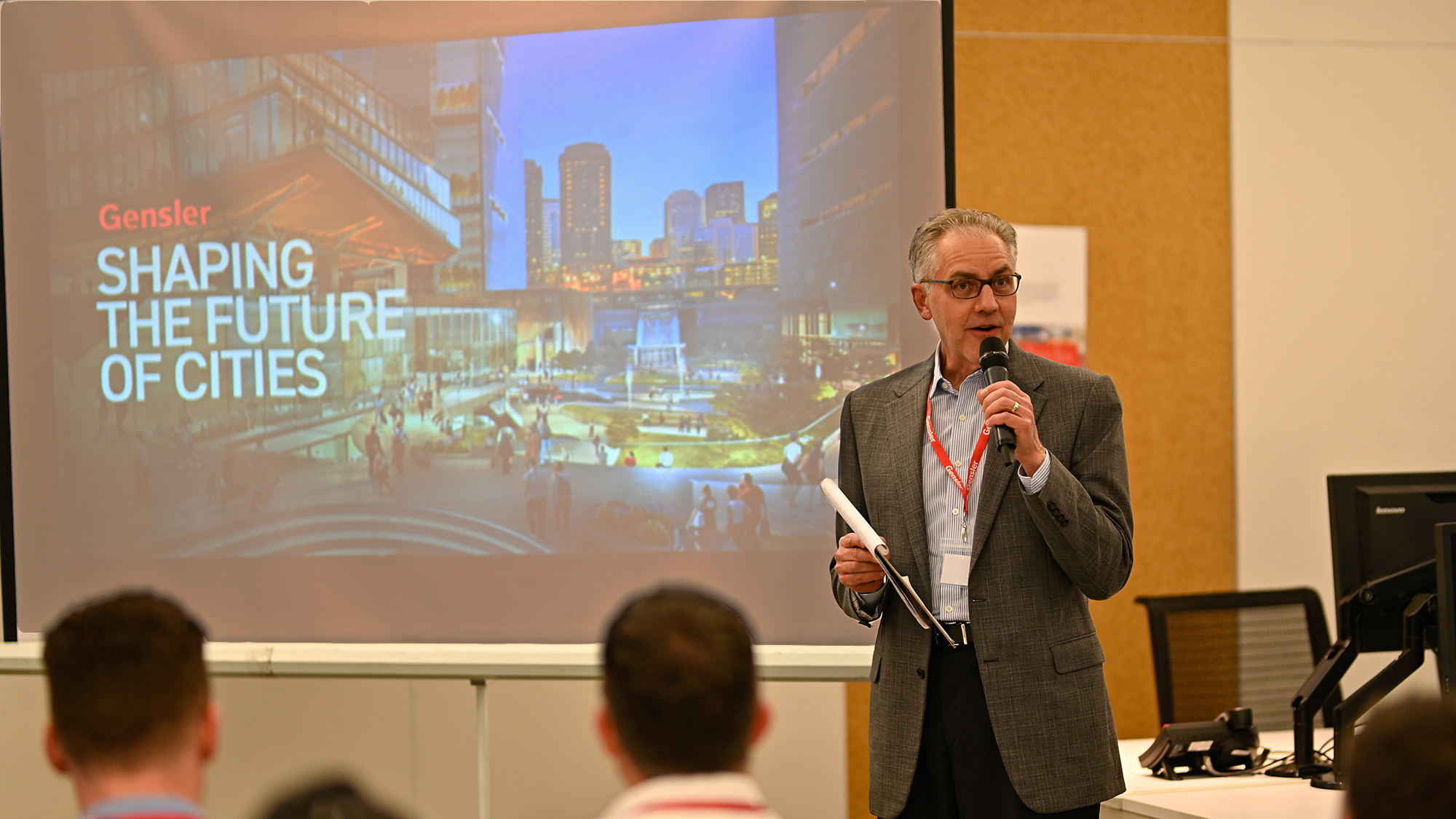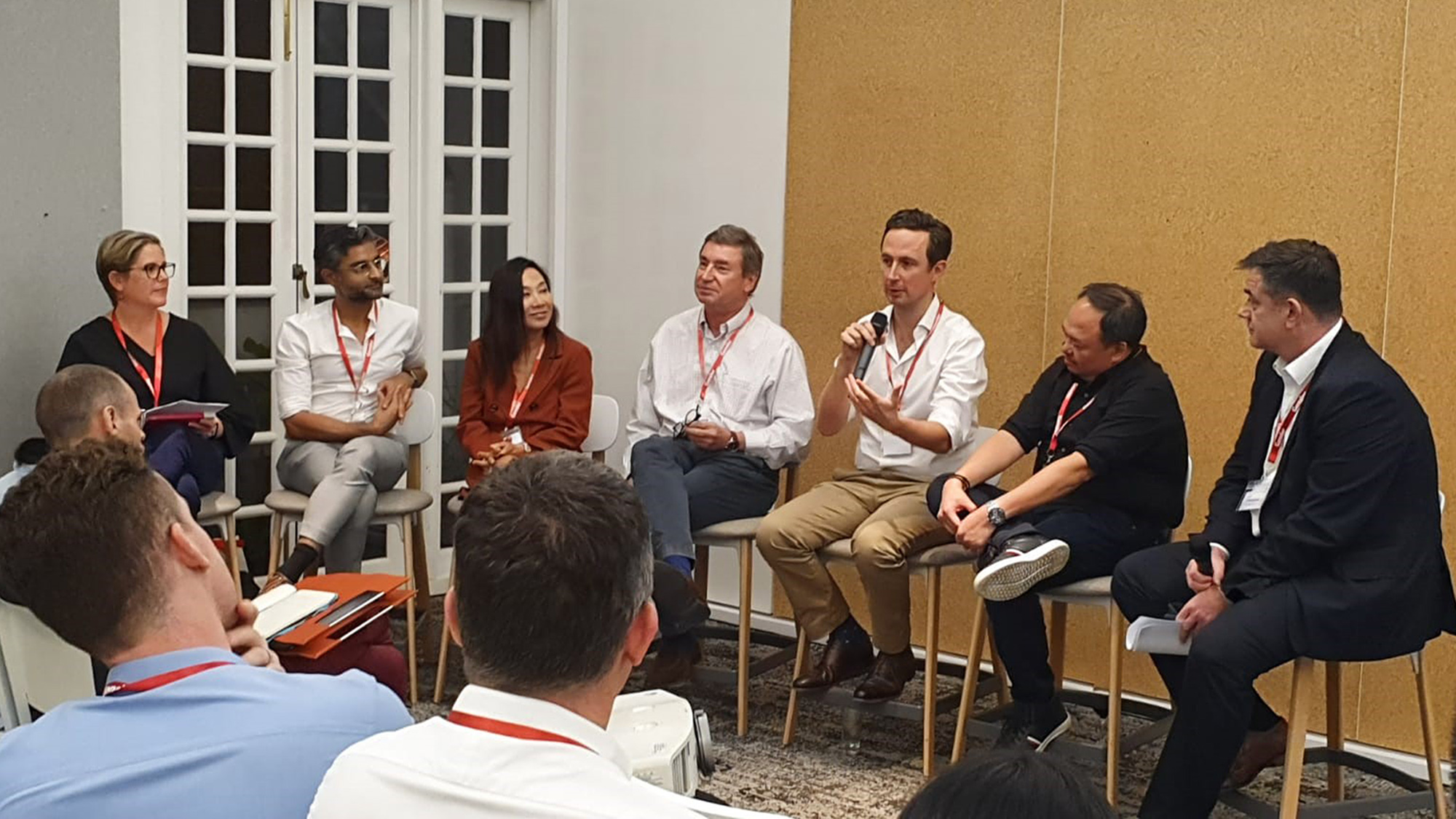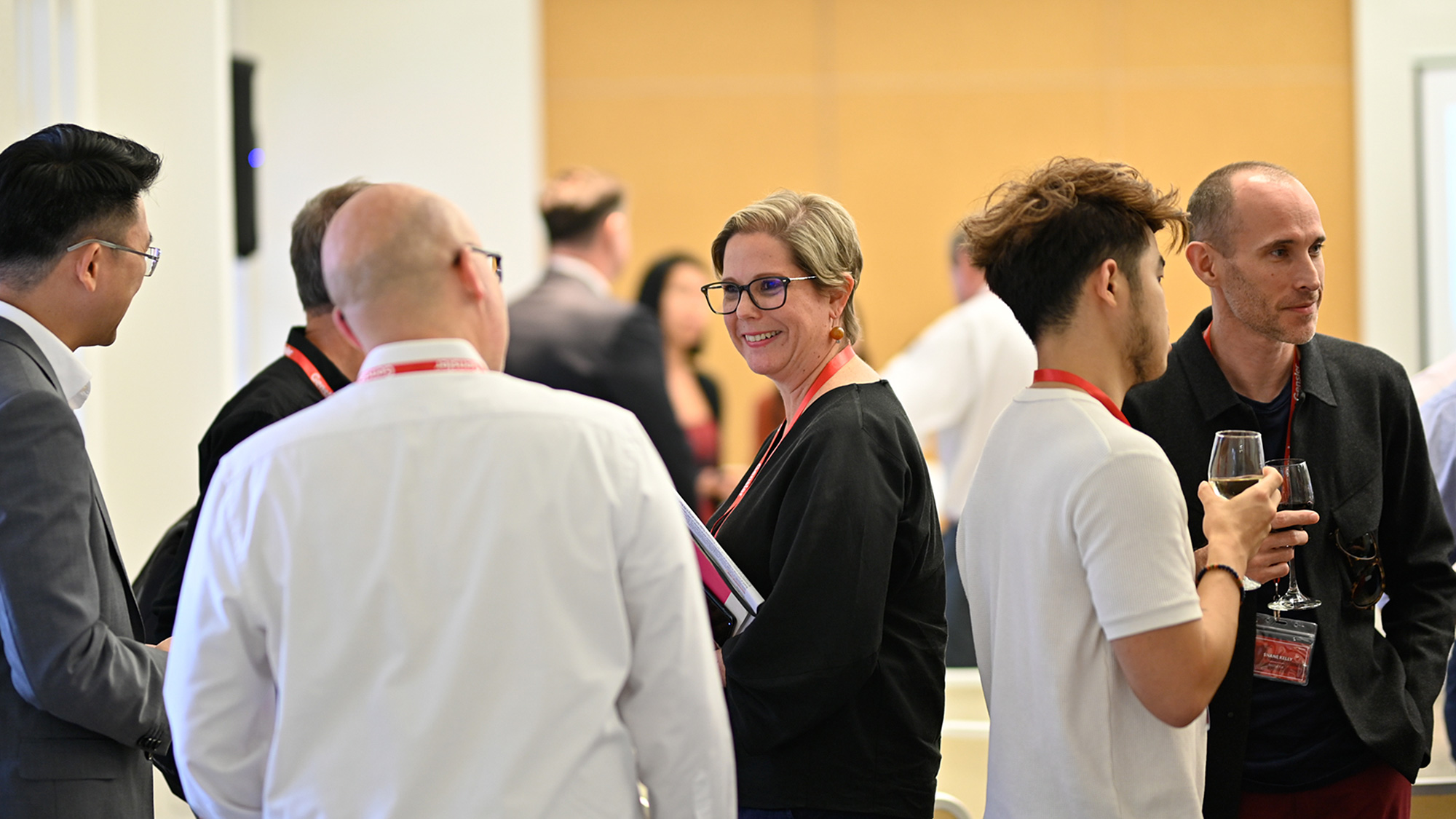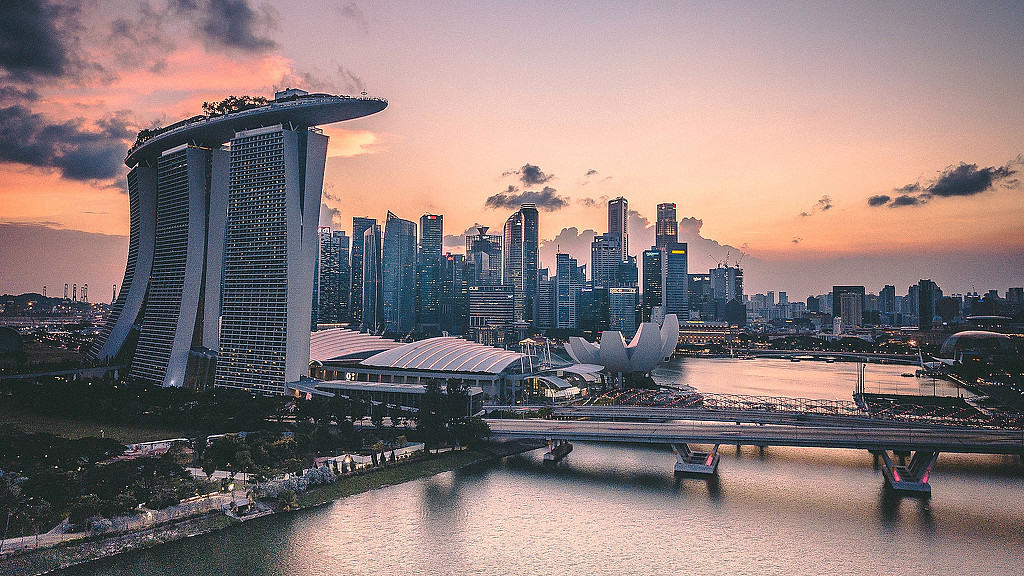Design Forecast Singapore: Repositioning for Smart Cities
By Angela Spathonis
Editor’s note: This post is part of Gensler’s Design Forecast Local, a series of hyper local conversations with our clients about the topics that matter most in our cities.
The human experience will change dramatically as cities welcome billions of new residents. Global population shifts present an incredible opportunity to design for tomorrow’s cities, including our own, Singapore, which is projected to reach 6.5 million people by 2030. On Oct. 30, 2019, Gensler Singapore convened a panel of leading minds in research, real estate, technology, and financial services for a panel discussion on “Repositioning for Smart Cities,” at our firm’s regional Asia Pacific hub office. The event invited participants to take part in a dialogue about renovation and redevelopment strategies that incorporate smart city goals and the impact that repositioning smart cities might have on well-established, dense urban environments like Singapore.

We must rethink how we approach development, with adaptability in mind.
Singapore is among the world’s most densely populated and densely built cities. Additionally, a significant percentage of Singapore’s building stock is aging and may need renovation, or could be replaced in the near future. In highly dense, urban environments like Singapore, we must rethink how we proactively approach development, with an eye towards adaptability and resilience.
With the modernization of Singapore's manufacturing sector, tenants are looking for newer buildings as opposed to older ones, leaving higher vacancies in industrial stock. The building sector contributes a quarter of Singapore's carbon emissions, so strategies that can improve the performance of existing buildings instead of tearing them down can minimize environmental impact and play a key role in tackling climate change. The panel discussed how we can refresh, revitalize, and re-envision real estate by unlocking potential and curating amenities that optimize the human experience and increase value. Neighborhoods like the Singapore Riverfront have flexible building stock that continues to thrive as the community evolves.

Repositioning is about more than just environmental resilience — it also encompasses cultural, resource, and functional resilience. Our future cities will need adaptive infrastructure. With declining rates of car ownership and the rising prominence of ride sharing, we need to rethink our designs and urban planning strategies today in order to be able to reclaim our streets and car parks in the future to make cities more walkable and livable.
More than just a functional requirement, adaptive infrastructure plays an outsized role in shaping the experience of cities. Chintan Raveshia, Cities Planning + Design leader for Arup, discussed how we can repurpose and create infrastructure for the future using technology and intelligent design. As cities densify, streets will play a critical role in supporting health and wellness by supporting a broader range of travel modes as safe, sustainable places for people. The human experience is becoming multimodal as new modes and choices replace transit dependency and people are able to compose infinite trip combinations to fit preferences of time, cost, sociability, and performance.

Smart cities represent an opportunity to leverage technology to make cities more efficient, livable, and sustainable. The panelists examined how urban solutions, digital technology, and data analytics can improve urban transportation, city management, and sustainable development. Singapore recently ranked as the “smartest” city in the world in 2019, according to the IMD Smart City Index 2019. The index defines a smart city as an “urban setting that applies technology to enhance the benefits and diminish the shortcomings of urbanisation.” But for a city to truly be smart, its technology must be in service to the people who live and work there. Smart city technologies, coupled with urban renewal frameworks; community development strategies; and impactful ideas towards equitable cities, can optimize human experiences to create resilient and inclusive cities.
The panelists discussed how Singapore, with its densely developed city state and forward-thinking government, can set an example for other Southeast Asian countries, who may experience similar challenges as they become increasingly urbanized. Through sustainable planning and management, we can create or adapt buildings and cities to have long, useful lives.

